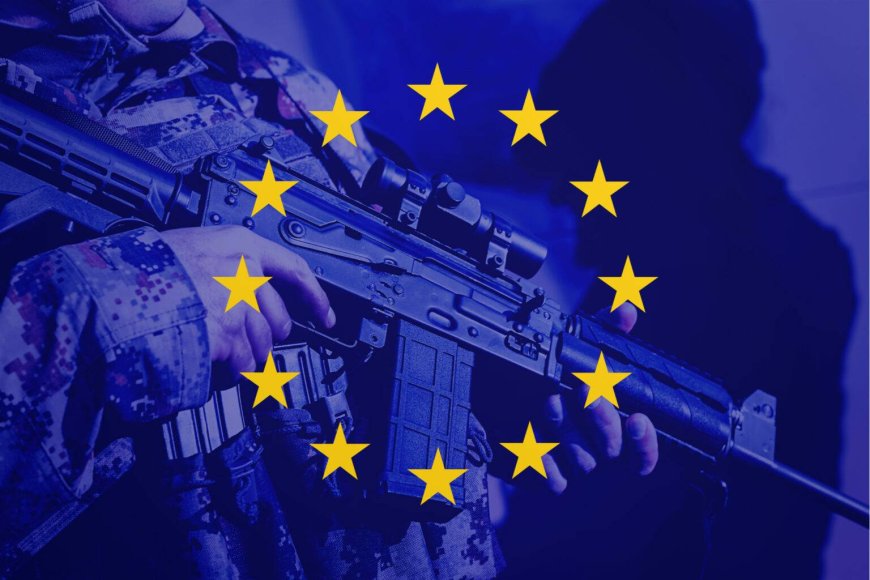Breaking Free from NATO: Europe's Quest for a Joint Military Force
Prior to the outbreak of the war in Ukraine and, in particular, during Trump’s tenure, French President Emmanuel Macron advocated for the establishment of a united European army, emphasizing the need for Europe to assert its independence in military affairs, free from reliance on Washington. This proposition resonated with European leaders, who saw it as an opportunity to strengthen the continent's defense capabilities. However, with the advent of the Biden administration, the drive behind this initiative diminished significantly.

Yet, the ongoing conflict in Ukraine has brought to the forefront the urgent necessity of a European Union army once again. Ursula von der Leyen, President of the European Commission, has consistently stressed the importance of defense and boosting the EU’s military capabilities in her speeches. Just days ago, the Italian Foreign Minister, Antonio Tajani, also voiced his support for the formation of a united European army, considering it essential for the survival of the European Union.
The idea of a united European army is not a recent one; in fact, it dates back to the 1950s, when France imagined a unified force comprising six nations: France, West Germany, Belgium, Italy, Luxembourg, and the Netherlands. The objective behind this proposal was to counter the Soviet threat; however, it did not see the light.
During the Cold War, Western Europe relied heavily on NATO, overshadowing intra-European cooperation and shelving the idea of a united army. In the post-Soviet era, Europe collaborated with the United States in developing NATO through a division of tasks. This division allocated battle and hard power responsibilities to NATO while positioning Europe as a lever for soft power influence. Later in 2009, the Lisbon Treaty marked the approval of the fourth European defense treaty, serving as a foundation for enhanced cooperation. More recently, in 2023, the European Defense Union's plan to expand the European defense structure was approved with the support of the majority of member states.
The European Union is currently engaged in various programs geared towards the establishment of its defense army, gaining significant momentum following the onset of the Ukrainian conflict. Among the most important initiatives in recent years is the Permanent Structured Cooperation (PESCO), introduced in December 2017. PESCO facilitates close cooperation among member countries through 47 joint programs spanning areas such as military medicine, maritime surveillance systems, cyber security, and rapid response teams. Another noteworthy program is the European Defense Fund (EDF), launched in June 2017 with the intention of financing defense programs.
Europe's post-Ukraine war approach appears to be focused on long-term defense strategies, as Von der Leyen alluded to some of these ambitious plans in her recent address to the European Defense Agency in November 2023. She emphasized the detrimental impact of EU member states sourcing equipment from outside the European Union, as it undermines the long-term prospects of the European defense industrial base. She stressed the need to redirect investments towards strengthening and preserving the continent's defense industry during times of crisis, emphasizing the imperative for Europe to spend more, better, and together.
Today, there seems to be a prevailing consensus within Europe regarding the formation of a joint army. The key challenge lies in determining how to shape and finance this endeavor. The issue of the army's independence vis-à-vis national forces and the delineation of its areas of operation will undoubtedly feature prominently in the intensive discussions among European leaders.
As Europe embarks on a protracted and arduous journey towards the realization of this union, it is acutely aware that failure to achieve defense independence would necessitate continued reliance on the United States, potentially compromising its economic and political autonomy. The year 2024 assumes paramount importance for Europe, as its ability to extricate itself from military dependence on the United States will be tested.













































